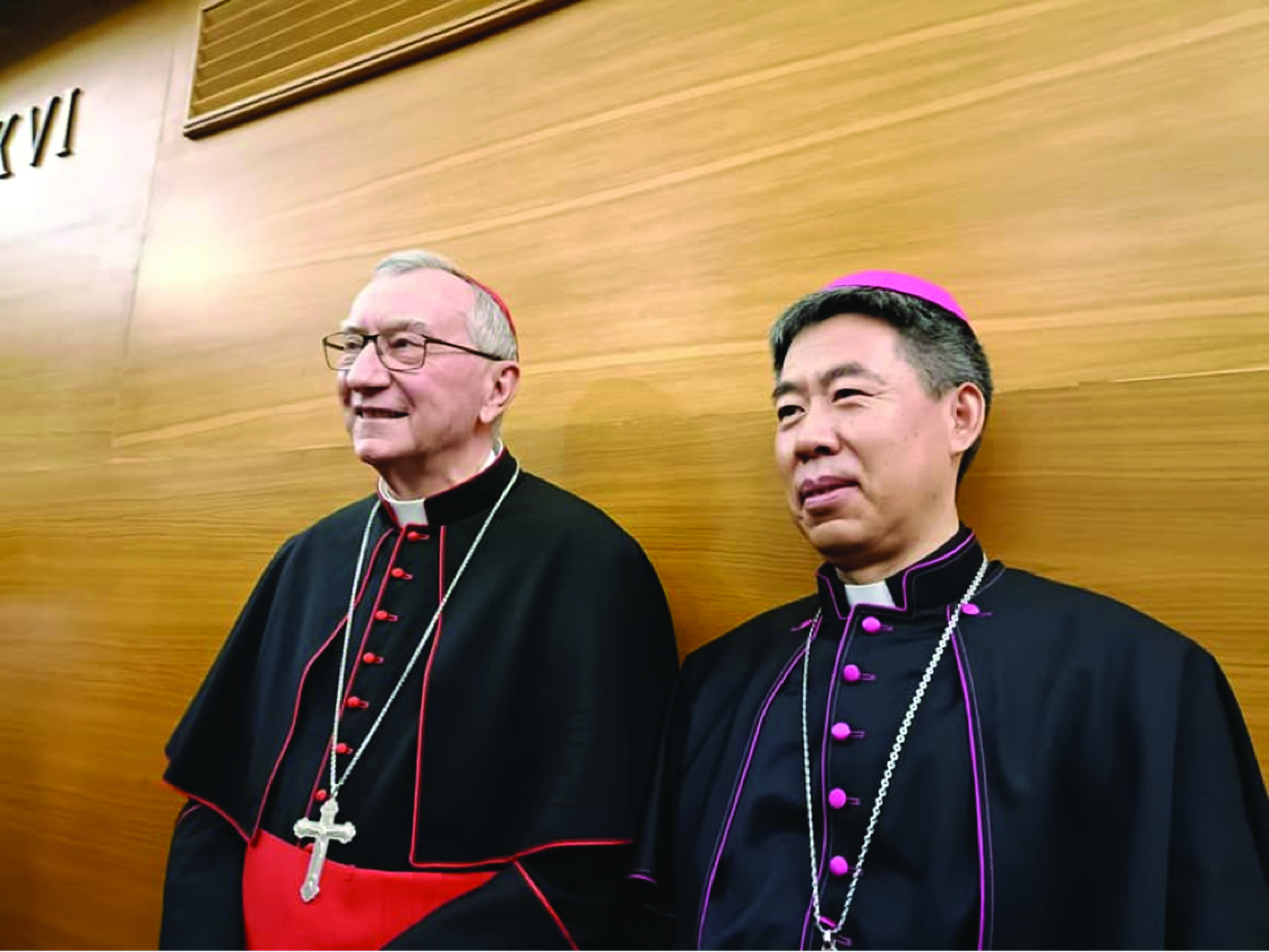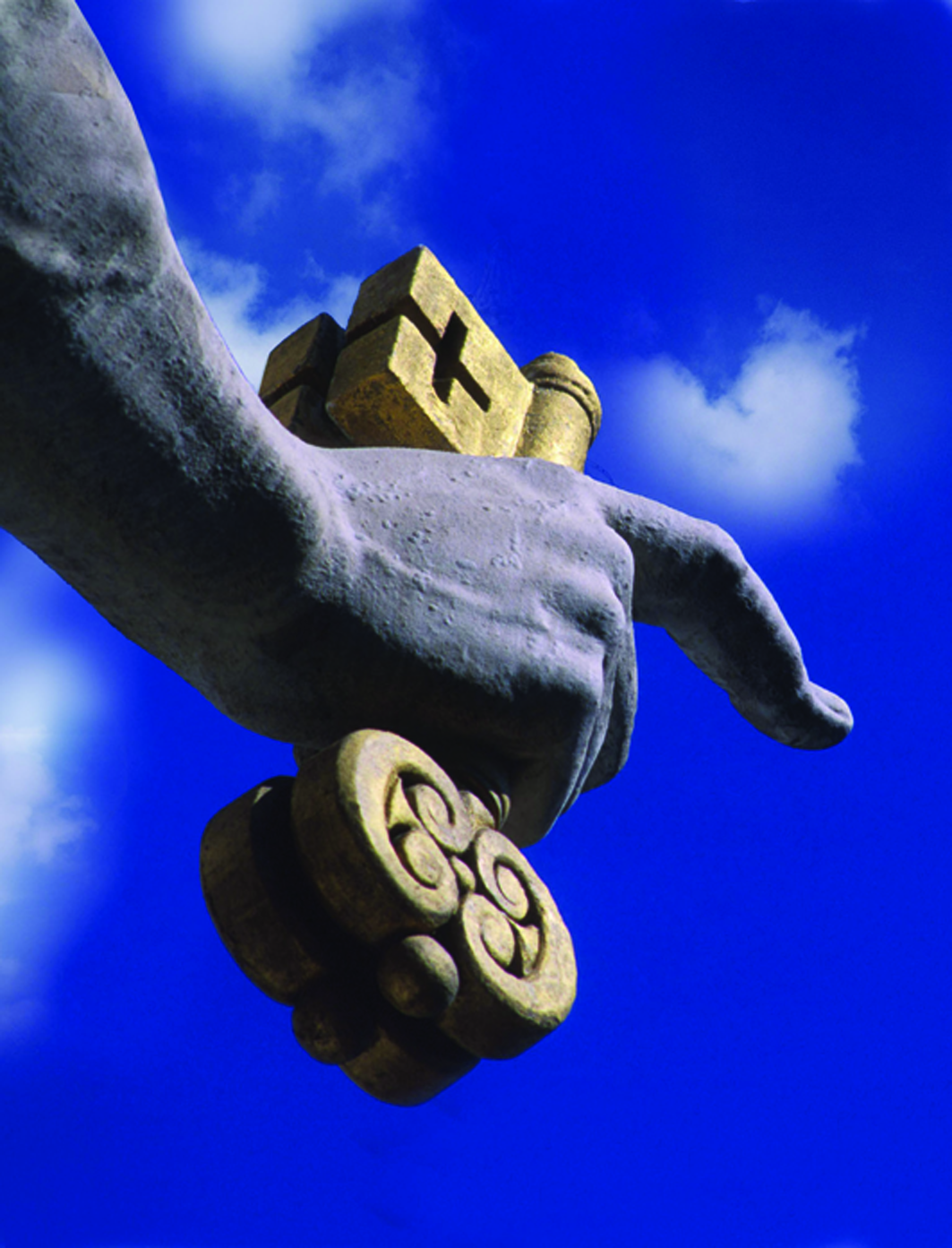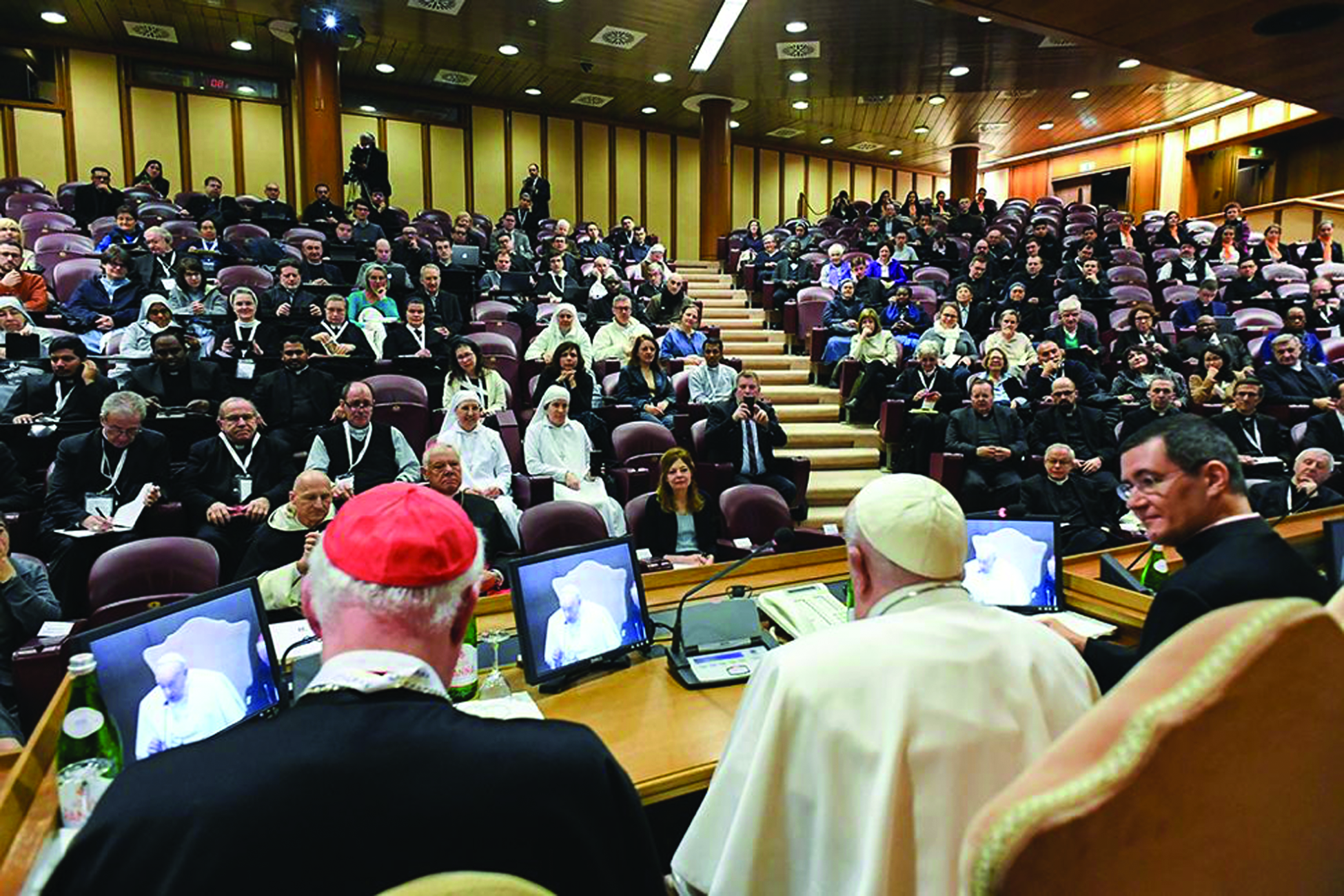
Pope Francis and Ecumenical Patriarch Bartholomew of Constantinople embrace during a prayer service in the patriarchal Church of St. George in Istanbul, November 29 (CNS photo/Paul Haring)
This humble Bishop of Rome, who says we can learn “the meaning of episcopal collegiality” from the Orthodox, has been “the right Pope at the right time”
Since the Second Vatican Council, there has been slow but steady progress in the efforts of various Popes to reach out to the Orthodox Church. These efforts have included some very dramatic events. Pope Paul VI held his historic meeting with Ecumenical Patriarch Athenagoras on the Mount of Olives in 1964. The 33-day pontificate of Pope John Paul I saw the startling event of Metropolitan Nikodim of Leningrad, the mentor of the present Patriarch Kirill, dying in the arms of the Pope. Pope St. John Paul II had a wonderful encounter with the Orthodox in Romania in 1999 and “broke the ice” with the Greek Orthodox in Athens in 2001 when he expressed deep regret over the sack of Constantinople by the Crusaders. Pope Benedict XVI visited Cyprus (June 4-6, 2010) and oversaw the resumption of the suspended Catholic-Orthodox theological dialogue. Now, Pope Francis has met Patriarch Kirill in the first meeting ever held between a Pope and a Patriarch of Moscow (February 12, Havana, Cuba).
Of these popes, Pope Francis has probably been the best received by the Orthodox. There are a number of reasons for this. First, he reached out to the Orthodox when he was Archbishop of Buenos Aires. He had a close relationship with the Orthodox clergy in Argentina and would annually attend the Russian Orthodox liturgy on the Julian calendar observance of Christmas. He helped the Orthodox in various ways and suggested the teaching of Orthodoxy at the University of Buenos Aires.
After becoming Pope, Francis startled the world by his humility and simple way of living. Beginning with his inaugural Mass, he has often referred to himself simply as the “Bishop of Rome.” This is the title most frequently used by the Orthodox for the papal office. He has emphasized the words of St. Ignatius of Antioch that the Church of Rome “presides in charity.”
He has referred to “the specific ministry of the Bishop of Rome which, in fidelity to his mission… can be, in the present context, a service of love and of communion acknowledged by all.” The humble and unassuming manner of Pope Francis gives great credibility to his assertion that the Petrine ministry can be one of love and not one of power and domination.
The Orthodox are also pleased by the emphasis placed by Pope Francis on collegiality. In addressing the Synod of Bishops on October 17, 2015, he told the bishops, “It is precisely this path of synodality which God expects of the Church of the third millennium.” The Holy Father added: “But in this Church, as in an inverted pyramid, the top is located beneath the base. Consequently, those who exercise authority are called ‘ministers,’ because, in the original meaning of the word, they are the least of all.” Two years earlier, in an interview with the Jesuit publication La Civiltà Cattolica, the Holy Father stated that from the Orthodox, “we can learn more about the meaning of episcopal collegiality and the tradition of synodality.” Although Pope Francis in no way discounts his unique role as the successor of St. Peter, he speaks of it in a way that is less threatening to the Orthodox.
The ability of Pope Francis to establish very close personal bonds is perhaps his greatest gift in his relationship with Orthodox leaders. Ecumenical Patriarch Bartholomew met on a number of occasions with Pope St. John Paul II and Pope Benedict XVI. The meetings were warm and friendly. However, the relationship between Bartholomew and Francis has truly become that of brothers. The relationship has been exemplified by such spontaneous and unanticipated gestures as Francis kissing Bartholomew’s hand in the Church of the Holy Sepulcher and Francis bowing and asking for the Ecumenical Patriarch’s blessing at the Patriarchal Church of St. George. Now another close relationship has begun with Patriarch Kirill. After the Havana meeting, Kirill referred to the meeting as “brotherly” and “full of love.” Kirill has said, “Since the first meeting took place, there may be a second and third.” In establishing closer relations with the Orthodox, Francis has in many ways been the right Pope at the right time.
Peter Anderson is a retired attorney who lives near Seattle. He devotes much of his retirement to Catholic-Orthodox relations.






Facebook Comments